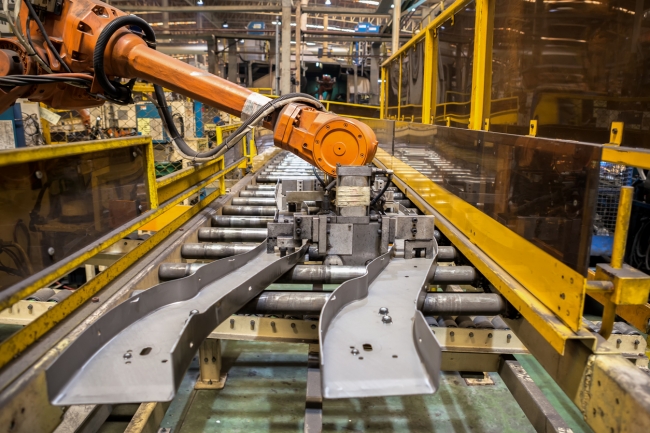3 minute read
Automation & digital advances to create better jobs in manufacturing
A third of UK manufacturers expect some low skilled jobs to be lost over the next five years as a result of Artificial Intelligence (AI) and digital technologies. But over half of companies (54%) say they will up-skill these lower-skilled workers to take the jobs that this innovation creates.
More than two-thirds of manufacturers plan to spend some of their training budgets over the next 12 months on technical engineering skills. Some of this will go on providing apprenticeships, which almost eight in ten employers currently offer, but the rest will be aimed at those existing employees who need to continuously up-skill for manufacturers to take the best advantage of 4IR and the income boost it can bring.

More than two-thirds of manufacturers plan to spend some of their training budgets over the next 12 months on technical engineering skills / Picture: Getty/iStock
However, a quarter of companies surveyed by Make UK have told us that they will look for external support to help lower-skilled employees whose jobs are going to be displaced seek employment elsewhere.
Verity Davidge, Head of Education and Skills Policy at Make UK, explained that this is where the Government’s new National Retraining Scheme will come into play, but there needs to be some adjustment to the current trial specifications to make it properly effective for those workers who need that help.
“Currently the scheme is being aimed at those employees whose jobs are at risk of being displaced as a result of AI and digitisation within their companies. But it fails to look at the fact that most companies want to retain their workers by up-skilling them to fill new jobs digital technologies will create or place these employees in other parts of the business. This is the missing link in funding support and provision which the Government’s Scheme could help to fix.
“The cost of retraining and up-skilling a manufacturer can be high, and the National Retraining Scheme, when it is properly rolled out across the country, needs to be more widely available including those employers who wish to up-skill their current workers as well as for those employees who do find themselves in a position where they are looking for alternative employment.”
Key findings from the latest Make UK research:
• Almost a third (31%) of manufacturers expect some job losses in lower level roles due to technological change in the next 5 years
• This reduces to 22% for mid-skilled roles and 12% for higher-skilled roles suggesting that where manufacturers are investing in 4IR it tends to be lower level roles where it will be tasks and processes, as opposed to jobs that will change.
• Manufacturers want to retain employees whose jobs are at risk – 58% plan to re-skill them to work in other parts of the business and 54% plan to up-skill them to work in new job roles that investment in digital technologies and techniques will create .
• There is a potential role for the Government’s National Retraining Scheme as a quarter (24%) of companies will be looking for external support.
• Manufacturers are thinking about their training spend in light of these changes. Even looking to the year again manufacturers are planning to spend their training budgets on technical engineering skills (68%) and productivity skills (57%). However only one in five (21%) of manufacturers are looking to spend any of their training spend on digital skills.
The National Retraining Scheme
The National Retraining Scheme (NRS) was first announced by the Government at the 2017 Autumn Budget. It was announced in response to support workers retrain as the economy changes, in particular in light of automation and Artificial Intelligence (AI). The NRS is being led by the CBI, TUC and Government, which is known now as the National Retraining Partnership.
While there was little detail upon its announcement, at the 2018 Autumn Budget the Chancellor committed £100m to begin the initial roll out of the NRS. This money was to test and learn about a possible service that aimed at supporting those workers whose jobs may be at risk of redundancy in the future due to automation and AI.
The NRS is aimed at responding to structural changes to the labour market (such as AI and automation) as well as the increasing need for lifelong learning and training (people working longer and changing careers).